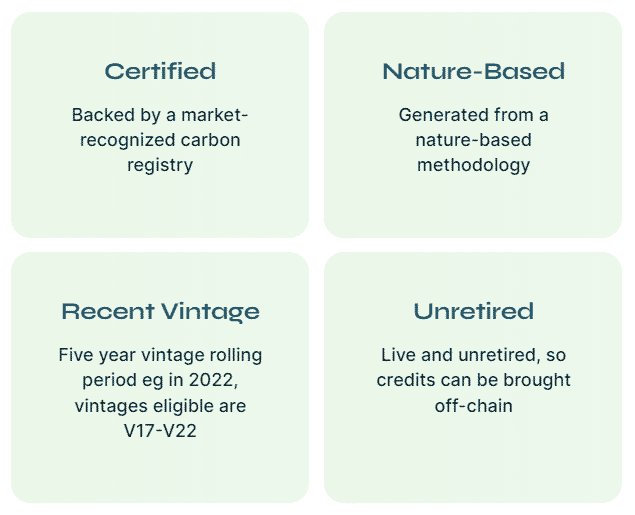Flowcarbon, a blockchain-enabled carbon credits trading firm, has raised $70 million.
Flowcarbon is an NYC-based climate tech company that operates at the intersection of carbon and crypto. Its main goal is to help speed up climate change solutions by tokenizing carbon credits. And by leveraging Web3, it aims to protect the earth’s natural carbon sinks.
The former WeWork CEO Adam Neumann co-founded the blockchain startup. Its first major funding round is for building market infrastructure in the voluntary carbon market (VCM).
The $70M funding consists of two parts.
- The $32 million is from the funding round led by venture capital giant Andreessen Horowitz (a16z) – Other major contributors are Samsung Next and Invesco.
- The other $38 million is from the firm’s sale of its “Goddess Nature Token” (GNT).
Flowcarbon’s Blockchain Technology for Carbon Credits
The climate tech firms will tap into the growing VCM to help companies offset their GHG emissions to fight against climate change.
In particular, the funding is for developing a protocol that tokenizes carbon credits. The aim is to drive investment in projects that remove carbon from the air.
Flowcarbon’s blockchain technology seeks to bring carbon credits on-chain. It will democratize access to offsets and incentivize high-impact climate change projects.
The current VCM is criticized for a couple of things. It’s fragmented, not transparent, hard to access, and there are doubts over the quality of some carbon credits.
Critics said that traders are converting older, lower-quality carbon credits into virtual assets.
- But the trend toward carbon-linked tokens persists to rise as demand for carbon credits surges.
And to help address the issues, Flowcarbon tokenized carbon credits through its two-way bridge, allowing credits to be on and off-chain.
By tokenizing credits, developers will gain cheaper financing earlier in their project’s life. It allows them to sell their credits forward to buyers who’ll enjoy more transparency.
Also, buyers from all backgrounds can join the Flowcarbon blockchain-backed market of carbon credits. The firm’s CEO, Dana Gibber said:
“Our mission is to provide the financing necessary to scale projects that reduce or remove carbon from the atmosphere… In particular nature-based projects.”
Nature-based projects may include reforestation, conservation, or nature restoration efforts.
Flowcarbon’s Goddess Nature Token
The firm’s flagship token GNT is a bundle token. This means it’s fungible and can be retired, redeemed, or unwrapped. Each carbon credit in Flowcarbon’s GNT is:
Bundling credits can help in liquidity and will allow for greater trading volumes than in a traditional carbon trading platform. This reduces the trading risks.
Also, renowned registries pre-certify all carbon credits before they become tokens. They include Verra, Gold Standard, Climate Action Reserve, and the American Carbon Registry.
The bundling process of GNT also enables token holders to unwrap and remove a credit from the bundle. They can then choose to sell the unwrapped credit off-chain for physical delivery.
Plus, nature-based carbon credits are seen to have the biggest market share according to Sylvera’s 2022 Carbon Credit Crunch Report.
The analysts said that the more expensive nature-based credits will soon be all that is left. And they trade between 2 and 4 times the price of energy credits.
Lastly, a little 2% fee for Flowcarbon’s blockchain tech for carbon credits will help developers save money. The cost of selling credits via the traditional offtake agreement is around 30%.
Blockchain-enabled carbon credits by Flowcarbon are a part of a wider movement where other companies are also active. It joins other players in the carbon-to-crypto world.
IBM also worked with Veridium Labs four years ago on a carbon credit-related token.
Toucan, Regen, and Moss also aim to improve transparency and accessibility to the carbon credit market.


